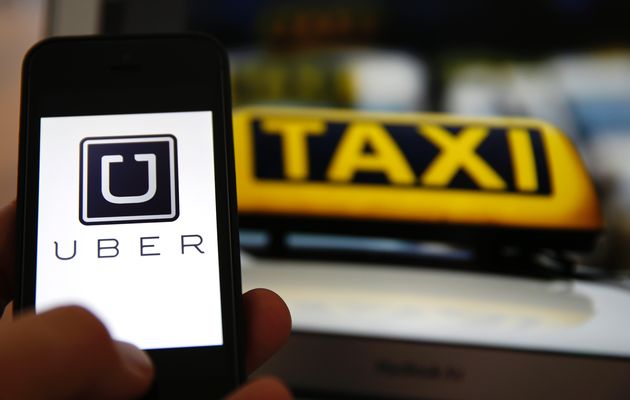A London court ruled Friday that Uber drivers should be classified as employees, rather than independent contractors. The decision could have serious ramifications on the ride-hailing company and its so-called “gig economy” brethren.
Uber’s current classification of drivers as contractors means the company isn’t responsible for many costs, including Social Security (in the US), health insurance, paid sick days, gas, car maintenance and much more. If all drivers are eventually deemed employees, Uber will have to pay for all of this, as well as manage a workforce of more than one million.
“This is a groundbreaking decision,” Annie Powell, a lawyer for the firm Leigh Day that represented UK Uber drivers, said in a statement. “It will impact not just on the thousands of Uber drivers working in this country, but on all workers in the so-called gig economy whose employers wrongly classify them as self-employed and deny them the rights to which they are entitled.”
Gig economy is a term given to the workforce in which someone is hired, usually through a digital marketplace, to work on demand, for a short-term engagement.
Founded in 2009, Uber offers a mobile app that lets passengers hail a ride from their phone. The company began operations in San Francisco and is now one of the world’s biggest ride-hailing services, operating in more than 450 cities in more than 70 countries.
Uber is also the highest-valued venture-backed company in the world with a valuation of $68 billion. Much of this valuation, however, is based on Uber’s ability to be profitable by running its ride-hailing platform. If the company has to pay for its drivers’ expenses, profits could diminish or costs could be transferred to passengers.
As discussions of driver classification arose over the past couple of years, Uber has always said that it classifies drivers as contractors because that’s what drivers want.
“Tens of thousands of people in London drive with Uber precisely because they want to be self-employed and their own boss,” wrote Jo Bertram, Uber UK’s regional general manager, in an email to CNET. “The overwhelming majority of drivers who use the Uber app want to keep the freedom and flexibility of being able to drive when and where they want.”
In the US, Uber settled two similar lawsuits in April over the classification of drivers. The class action suits were brought in California and Massachusetts and involved roughly 385,000 drivers. Under the settlement agreement, Uber was allowed to continue classifying its drivers as independent contractors but had to pay $100 million to the drivers involved in the suit. The ride-hailing company also agreed to certain concessions, including giving drivers more information when they’re banned from the service, not terminating drivers at will and creating a “Driver Association” to address drivers’ concerns.
The London Central Employment Tribunal on Friday took these decisions a step further. The court said Uber drivers should be classified as employees, earn at least the national minimum wage and get paid vacations. The tribunal will hold another hearing to determine the amount of pay drivers should receive.
Uber said it is appealing the decision.
While this preliminary decision threatens Uber’s business model, it’s currently limited to only two drivers. Uber has more than 40,000 drivers in the UK. Lawyers for the two drivers said they intend to open the case up to those thousands of other drivers.
In the wake of Uber’s worker classification battles, several other on-demand companies have begun to rethink employee classification. The grocery-delivery startup Instacart said in June 2015 that it’s switching hundreds of its personal shoppers from contract workers to part-time employees. House-cleaning startup Homejoy said in July 2015 that it was permanently shutting down after being sued over the classification of its workers. Several similar lawsuits have also popped up against other on-demand companies, including Postmates, Handy, Shyp and Washio.
“The Uber ruling will demystify much rhetoric on the ‘gig economy’ being inherently liberating,” said Guglielmo Meardi, industrial relations professor at Warwick Business School in the UK. “Over recent years self-employment has increased, but often coming with very bad conditions, prompting fears that it was being used to bypass employment legislation.”
–
Source: CNET


